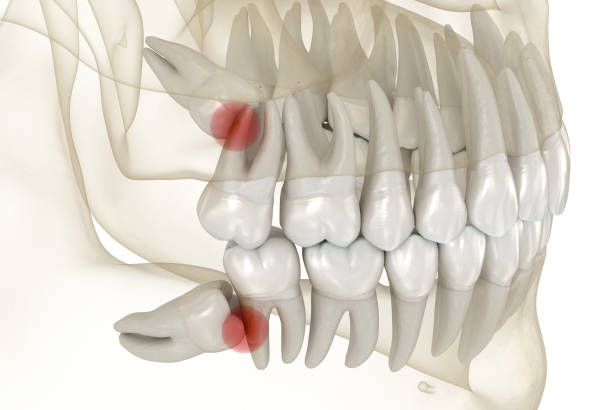Elevating Wellness, Crafting Smiles
0800 282 569
Wisdom teeth are the last set of molars to erupt in our mouth. While some people don’t have problems regarding their third molars, many people encounter problems that necessitate wisdom teeth removal.
Wisdom teeth removal is a common procedure that prevents further symptoms and complications it may cause on the adjacent teeth and tissues.
One of the primary reasons for wisdom tooth extraction is the lack of adequate space for it to erupt in the mouth. As these molars emerge, they may not have enough room to grow in a favorable manner. As a result, they can become impacted (partially or fully trapped beneath the gumline and jawbone), causing discomfort and potential damage to adjacent teeth.
This scenario may cause pain, swelling, infection, and a risk of developing cysts or tumors. Tooth removal nz is crucial to prevent these from happening.
Wisdom teeth can grow in at odd angles, pushing against neighboring teeth and causing misalignment. This can undo years of orthodontic treatment, leading to crooked teeth and bite problems.
As wisdom teeth are located at the back most portion of the mouth, it makes them difficult to clean and brush. This may lead to decay on the wisdom tooth itself or its adjacent teeth. Food impaction within the area may also cause gum disease if not removed.
Cysts can form around impacted wisdom teeth, causing damage to the surrounding bone and teeth. In rare cases, tumors may develop, necessitating the removal of the affected teeth.
Panoramic radiographs and CBCT may be necessary to assess the position and condition of the wisdom teeth. The surgeon will discuss the procedure, options for anesthesia, and answer any concerns of the patient.
This will help the patient become more reassured with the procedure and lessen anxiety.
The surgeon may provide prescriptions for anxiety and pain relief to be taken before the procedure. The patient must come one hour prior the appointment to take the medications.
Wisdom tooth removal nz is typically done under local anesthesia. But for anxious or nervous patients, you can request for sedation which will be administered by a medical practitioner.
The dental surgeon will create an incision in the gum tissue to access the wisdom teeth. If the wisdom tooth is partially embedded in the bone, reduction will be done to expose the tooth. Wisdom teeth may be extracted in one piece or divided into smaller section for easier removal.
After the extraction, the area will be sutured for faster healing of the wound.
The normal recovery for wisdom teeth removal surgery is around 7 days. You may visit your surgeon for recall check-up and suture removal which is just a minor procedure.
"Do not let wisdom teeth disrupt your normal day activities if it’s causing you too much pain and discomfort. "
After the extraction, your dentist or oral surgeon will place a piece of gauze over the surgical site. Bite down gently but firmly on the gauze for about 30minutes to control bleeding. Replace the gauze as needed until the bleeding subsides.
The dental surgeon may prescribe pain medications or recommend over-the-counter pain relievers to manage the pain. Follow the prescribed dosage and instructions carefully.
Swelling is also common after wisdom tooth removal. Applying a cold pack or ice wrapped in a cloth to the outside of your cheek near the extraction site can help reduce swelling. Do this for about 15 minutes at a time, with short breaks in between.
Plan to rest for at least 24hours after the procedure. Avoid any strenuous activities that could increase blood flow to the surgical site and disrupt the healing process.
Maintain good oral hygiene to prevent infection. However, be gentle around the surgical area for the first 24 hours. After the initial day, gently rinse your mouth with warm saltwater (1/2teaspoon of salt in 8 ounces of water) several times a day, especially after meals, to keep the area clean.
Refrain from smoking and consuming alcohol for at least 24 hours after the procedure, as they can hinder the healing process and increase the risk of complications.
Do not use straws for drinking during the initial days, as the sucking motion can dislodge blood clots and impede healing.
Avoid bending, heavy lifting, and other activities that may dislodge clot and cause bleeding.
Our clinic provides free initial dental consultation for us to assess your condition and estimate the cost of wisdom teeth removal so don't hesitate to book an appointment with us.
2 Dodson Avenue
217 Great South Road
177 Parnell Road
14 Delta Avenue